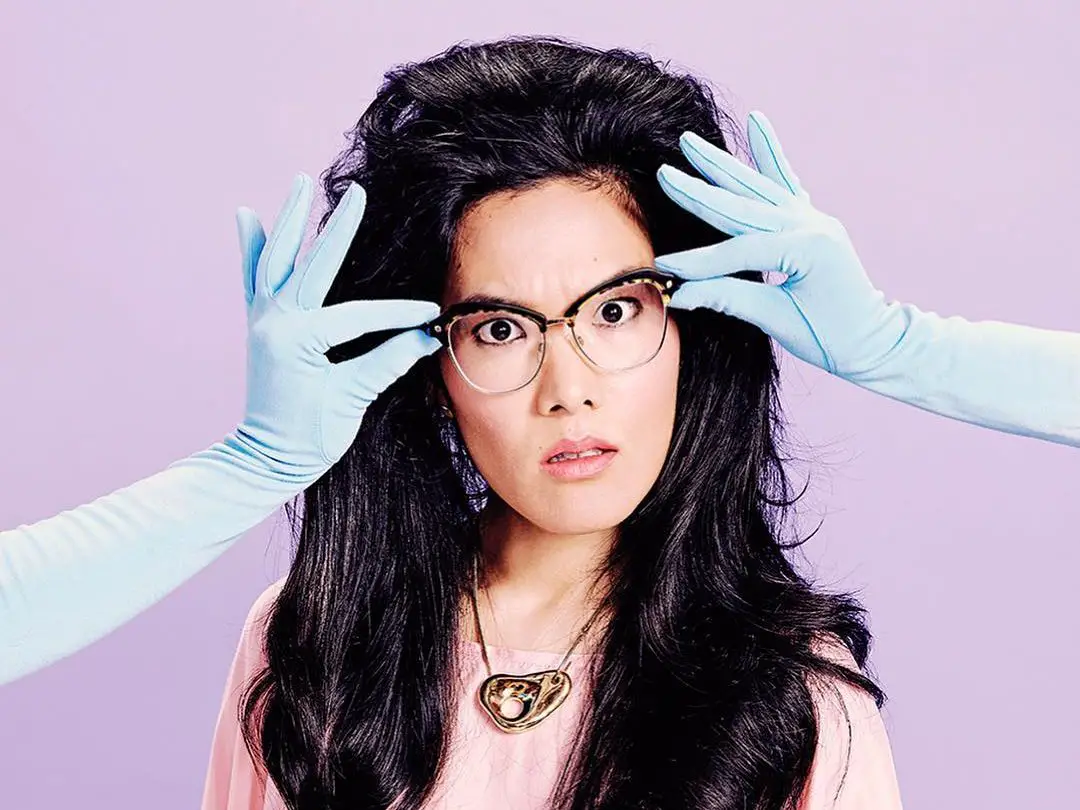Over the past century, women have seen the legalization of contraception, the right to abortion, equal funding in schools and more. Although women have made great strides, there are still many gender double standards that persist today. Many of them seem harmless but are nevertheless persistent, sometimes because of women themselves. Fortunately, stand-up comedian Ali Wong has been making waves with her sets, revealing and breaking down these long-standing stereotypes.
Wong first broke into the mainstream with her two Netflix specials, “Baby Cobra” in 2016 and “Hard Knock Wife” in 2018. Much of Wong’s humor revolves around her personal life. In “Baby Cobra,” Wong focuses on the misconception of miscarriage as an uncommon occurrence, the belittlement of housewives and the lack of female comedians.
As Wong points out, “It’s very rare and unusual to see a female comic perform pregnant because female comics … don’t get pregnant.” Along with her anecdote about her friends, who “get very judgmental about housewives that we’ll see on the street,” Wong shows the divisiveness that exists even among members of the same gender.
However, it was in “Hard Knock Wife” that Wong truly began to shine as she broke down the long-standing stereotypes of being a mom. Wong confesses that when she returned to do stand-up after giving birth, many people asked her, “Who’s taking care of the baby?” Others asked her, “How on Earth do you balance family and career?”
Although people also ask fathers these questions, mothers are usually the targets of these critiques. This perpetuation of gender inequality where society views mothers as more integral and necessary to childrearing than fathers is harmful to both men and women. After all, as Wong says, “The standards for dads are so low that they get so much praise for doing so little.” Society has conditioned us to accept that mothers taking the greater share of responsibility in raising a family is normal, even if that mother is already recovering from childbirth and salvaging her own career.
Wong’s riffs on motherhood all tie together her call for universal maternity leave, a policy that has been established federally in every other developed nation except the United States. As Wong says, “Maternity leave is not just to bond with the baby. F— the baby! Maternity leave is for new moms to hide and heal their demolished-ass bodies!”
With every stand-up special, Wong spells out the gender divide that still exists. In particular, she breaks down the glamorous facade of parenthood. Through her jokes, Wong reveals some of the less enchanting details and changes that go on with the female body.
“You know what happens after the baby comes out?” Wong asks the audience, “You know what else exits? Her house. Her living room, her pillows… the Bob Marley poster… All the food that went bad in her refrigerator… for months! So then you have to wear this cartoonishly large pad.”
Following the success of her Netflix specials, Wong released her debut book, “Dear Girls: Intimate Tales, Untold Secrets, & Advice for Living Your Best Life.” The book is a series of intimate letters addressed to Wong’s two daughters. “Dear Girls” has the same raucous sense of humor Wong displays in her comedy specials. Through the letter format, however, “Dear Girls” features some beautiful golden nuggets of wisdom and advice.
In “Dear Girls,” Wong returns to discussing feminism by pointing out the double standard between men and women when it comes to giving up their careers for the sake of family. Wong writes, “[When] women dedicate their lives to children, it is deemed a worthy and respectable choice. . . [When] a man dedicates himself to taking care of his children, it’s seen as a last resort.” There are much higher expectations for women to give up their careers for the sake of family as opposed to men. To truly break down gender inequality, we must accept men that focus on family rather than careers.
Wong herself is a unique figure. Not only is she a woman who has succeeded as a comic, but she is also an Asian American. Both media and comedy underrepresent these identities. In “Dear Girls,” Wong isn’t afraid to share her upbringing as a daughter of Vietnamese and Chinese parents. She also calls out stereotypes of Asian men as “robot nerds who have no idea how to find a woman’s clitoris.”
An advice book would be remiss without the juicy details on relationships and marriage. Despite all the funny anecdotes involving her husband, Wong is careful not to paint their relationship as perfect. In fact, Wong reveals that she and her husband have couple’s therapy every Friday morning. Wong’s unerring honesty with her relationship isn’t meant to demoralize her readers; rather, it’s to remind us that imperfections make relationships worthwhile.
Wong admits that “When you live in America, everything is so inherently white.” Her prior struggles and present pride for “having black hair and Asian features” rub off on her children and her audience.
It’s clear that Wong’s skyrocketing fame is only just beginning. Her raw and unfiltered thoughts on gender, race and navigating life are relatable, refreshing and laugh-so-hard-you’ll-cry funny. Audiences should keep on their toes for what she’ll do next.
















